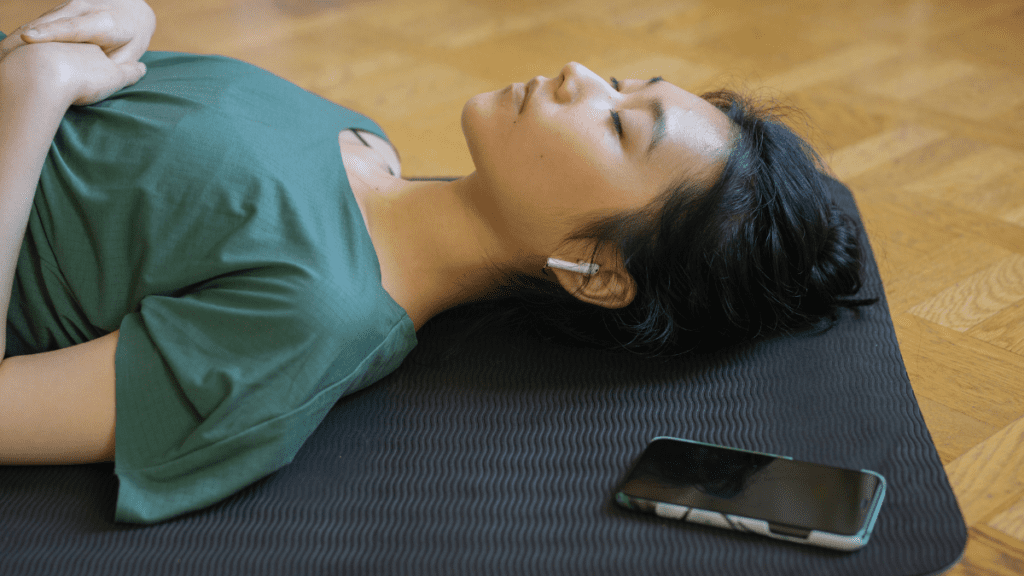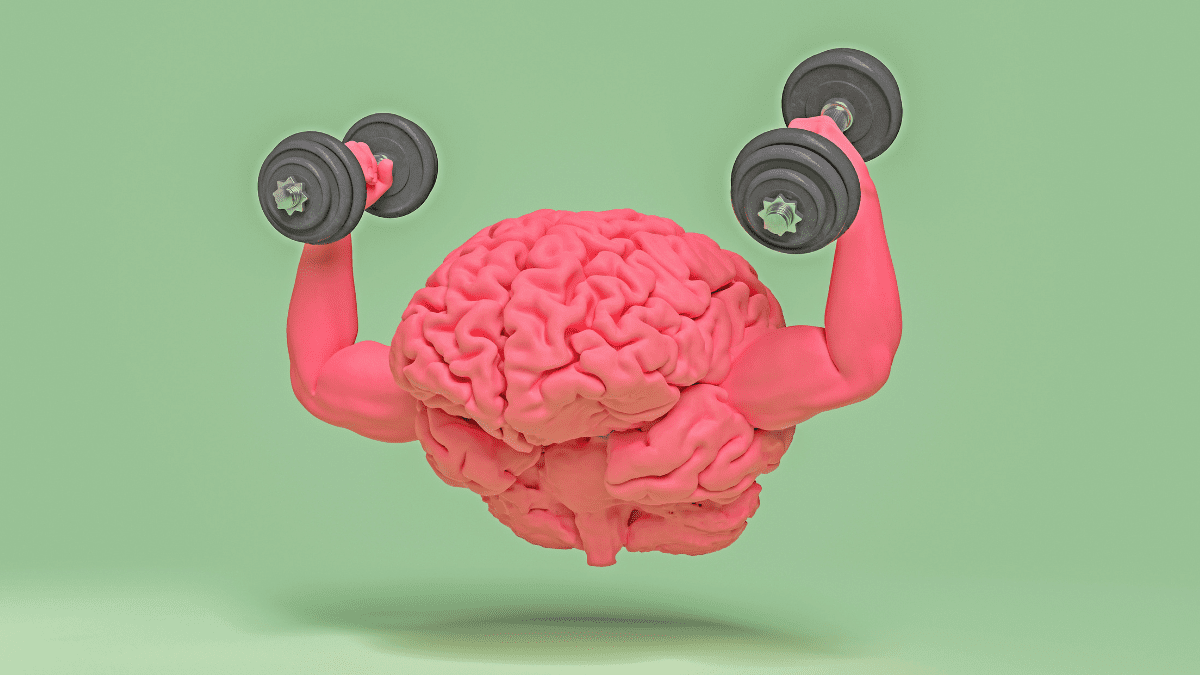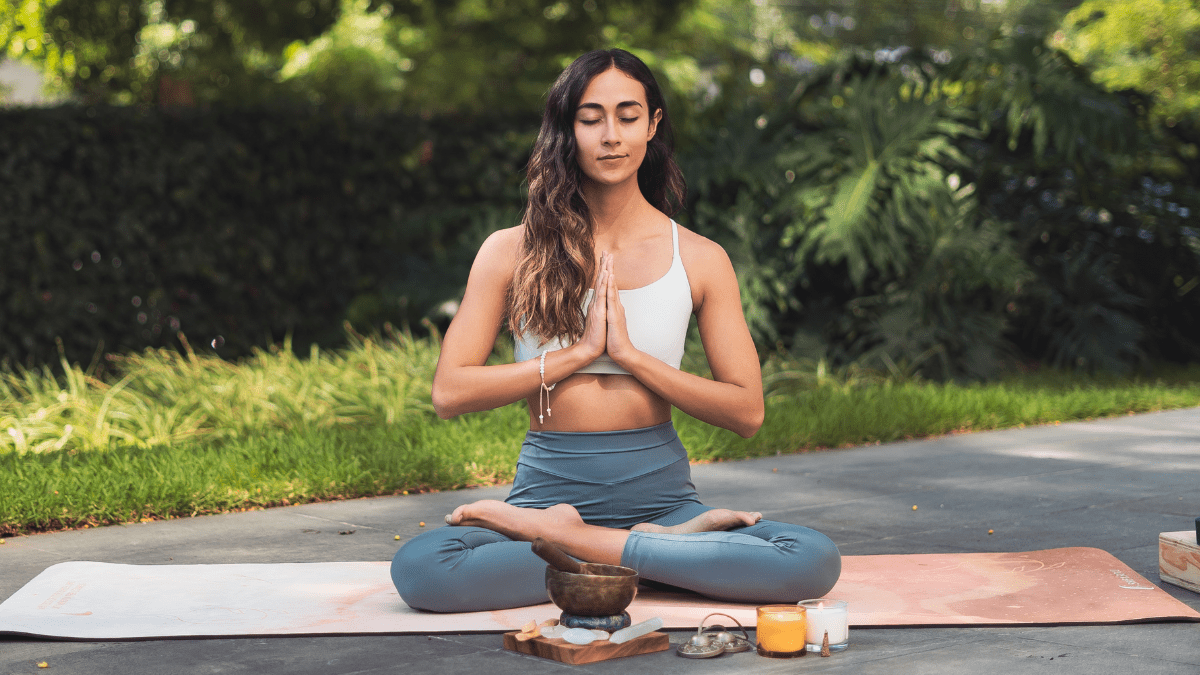Can Meditation Replace Sleep? The Ultimate Sleep Hack
Can meditation replace sleep, or is it just a myth? The truth will change how you rest, recharge, and recover. Discover the ultimate sleep hack now!

In This Article
- Can Meditation Replace Sleep? The Surprising Truth
- Can Meditation Replace Sleep? What Science Says
- How Does Meditation Affect the Brain Compared to Sleep?
- How Does Meditation Affect the Brain Compared to Sleep?
- Can Meditation Reduce the Need for Sleep?
- Meditation vs. Sleep: Which Is More Important?
- The Best Meditation Techniques for Deep Rest
- Can Meditation Replace Sleep? The Final Verdict
- Can Meditation Replace Sleep? — FAQ
Can Meditation Replace Sleep? The Surprising Truth
Can meditation replace sleep, or is it just a myth? Many people struggle to get enough rest, searching for ways to feel refreshed without sleeping more. Meditation is often praised for its ability to reduce stress and boost energy. But can it truly serve as a substitute for sleep?
Science proves that sleep is essential for brain function, memory, and overall health. Yet, certain meditation techniques, like Yoga Nidra, claim to provide deep rest that mimics sleep. Some experts even suggest that meditation can reduce the need for sleep. But is it enough to replace it entirely?
Understanding the connection between meditation and sleep is key. While both promote relaxation, they affect the body and brain differently. Some meditation methods create a state of restfulness similar to deep sleep, but the body still requires actual sleep for full recovery.
In this article, you will learn how meditation impacts rest, whether it can reduce your sleep needs, and how to use it for better sleep quality. If you are interested in mind-enhancing techniques, check out Brain Flossing Meditation: The Mind Hack You Need Now to discover another powerful way to optimize mental clarity.
Are you ready to uncover the truth about meditation and sleep? Let’s dive in.
Can Meditation Replace Sleep? What Science Says
Many believe meditation can replace sleep, but what does science reveal? Sleep is essential for brain function, memory consolidation, and physical recovery. Meditation, on the other hand, induces deep relaxation and mental clarity. But can it truly serve as a full replacement?
How Does Sleep Restore the Body and Mind?
Sleep is not just about resting. It is a biological process that repairs tissues, strengthens immunity, and balances hormones. The brain processes information, clears toxins, and forms new neural connections. Without it, memory declines, mood worsens, and overall health suffers.
During deep sleep, the body enters slow-wave sleep (SWS) and rapid eye movement (REM) sleep. These stages are crucial for cognitive function. Meditation can slow brain waves, but it does not fully replace these cycles.
Can Meditation Replace Sleep for Mental Recovery?
Meditation offers benefits similar to sleep, but with key differences. It activates the parasympathetic nervous system, reducing stress and promoting relaxation. Some studies show that advanced meditators can enter a state of rest that mimics deep sleep. However, this does not mean meditation can fully replace sleep.
Unlike sleep, meditation does not trigger the body’s complete repair process. The brain still requires REM sleep for emotional processing and memory storage. While meditation can enhance focus and energy, it cannot replicate the full biological functions of sleep.
What Do Sleep Experts Say About Meditation as a Sleep Replacement?
Experts agree that meditation improves sleep quality but does not eliminate the need for rest. Meditation helps regulate cortisol, the stress hormone that interferes with sleep. Regular practice can make falling asleep easier and reduce nighttime awakenings.
Some sleep specialists suggest that mindfulness meditation can significantly improve insomnia and sleep efficiency. However, they also stress that replacing sleep entirely with meditation can lead to cognitive decline, fatigue, and weakened immunity.
How Can Meditation Support Better Sleep?
While meditation cannot replace sleep, it can improve sleep quality. Techniques like Yoga Nidra, body scan meditation, and guided relaxation help activate the brain’s natural relaxation response. These methods allow people to fall asleep faster and experience deeper rest.
A study on meditation and sleep quality found that mindfulness techniques can help people with insomnia reduce their sleep disturbances.

How Does Meditation Affect the Brain Compared to Sleep?
Meditation and sleep both influence the brain, but in different ways. Sleep is essential for memory consolidation, emotional regulation, and physical restoration. Meditation promotes relaxation, sharpens focus, and strengthens self-awareness. But does meditation provide the same benefits as sleep?
What Happens to the Brain During Sleep?
Sleep follows distinct stages. Light sleep, deep sleep, and rapid eye movement (REM) sleep all serve different functions. Deep sleep helps the brain clear toxins and restore energy. REM sleep is crucial for processing emotions and forming long-term memories.
Without these stages, cognitive function declines. Sleep deprivation weakens attention, increases stress, and disrupts hormone balance. The brain depends on sleep to repair itself and maintain mental clarity.
How Does Meditation Alter Brain Activity?
Meditation shifts brain waves into a relaxed state. Studies show that experienced meditators can enter deep, slow-wave brain patterns similar to sleep. This can promote restfulness and reduce mental fatigue.
However, meditation does not fully replicate REM sleep. The brain remains conscious, and the subconscious does not process emotions in the same way. While meditation can enhance relaxation, it cannot entirely replace the brain’s need for sleep cycles.
Can Meditation Improve Sleep Efficiency?
Meditation does not replace sleep, but it can enhance its quality. It lowers cortisol, the stress hormone that disrupts sleep. It also increases melatonin, the hormone responsible for regulating sleep cycles.
People who practice mindfulness meditation often fall asleep faster and experience fewer sleep disturbances. A study found that meditation reduces insomnia and improves overall sleep efficiency. While it does not replace deep sleep, it helps maximize the rest you get.
What Are the Key Differences Between Meditation and Sleep?
The biggest difference is consciousness. Sleep allows the brain to enter a state of complete rest. Meditation keeps the mind alert while inducing relaxation.
Another key difference is recovery. Sleep restores the body on a cellular level. Meditation reduces stress but does not fully replenish physical energy. Both are important, but they serve different roles in maintaining health and well-being.
Meditation is a powerful tool, but it cannot completely substitute for sleep. However, it can help regulate the nervous system, improve focus, and make sleep more restful.
How Does Meditation Affect the Brain Compared to Sleep?
Meditation and sleep both influence the brain, but they do so in distinct ways. Understanding these differences can shed light on whether meditation can replace sleep.
What Happens to the Brain During Sleep?
Sleep is essential for maintaining overall health. During sleep, the brain undergoes various stages, including rapid eye movement (REM) and non-REM sleep. These stages are crucial for processes like memory consolidation, emotional regulation, and physical restoration. Lack of adequate sleep can impair cognitive functions, weaken the immune system, and negatively affect mood.
How Does Meditation Alter Brain Activity?
Meditation practices, such as mindfulness and focused attention, can lead to significant changes in brain activity. Research has shown that regular meditation can increase gray matter density in areas associated with learning, memory, and emotional regulation. Additionally, meditation can reduce activity in the brain’s default mode network, which is linked to mind-wandering and self-referential thoughts. These changes may contribute to improved focus, emotional stability, and overall mental well-being.
Can Meditation Mimic Sleep’s Restorative Effects?
While meditation can induce a state of deep relaxation and offer some restorative benefits, it does not replicate all the functions of sleep. Sleep involves complex physiological processes that meditation alone cannot fully provide. Therefore, meditation should be viewed as a complementary practice to enhance well-being, rather than a replacement for sleep.
Can Meditation Reduce the Need for Sleep?
Meditation and sleep both play significant roles in maintaining mental and physical health. While sleep is essential for various bodily functions, some wonder if meditation can reduce the need for sleep.
Meditation Compensate for Sleep Deprivation?
Sleep is crucial for processes like memory consolidation, emotional regulation, and physical restoration. Chronic sleep deprivation can lead to cognitive impairments, mood disorders, and weakened immunity. While meditation can induce relaxation and reduce stress, it does not fully replicate the restorative functions of sleep. Therefore, relying solely on meditation to compensate for lack of sleep is not advisable.
Does Meditation Enhance Sleep Quality?
Regular meditation practice has been shown to improve sleep quality. A systematic review found that mindfulness meditation interventions significantly improved sleep quality compared to nonspecific active controls. By reducing stress and promoting relaxation, meditation can help individuals fall asleep faster and enjoy deeper sleep.
Can Meditation Reduce Total Sleep Time?
Some studies suggest that experienced meditators may require less sleep due to enhanced sleep efficiency. However, these findings are not universal, and individual sleep needs can vary. While meditation can improve the quality of sleep, it should not be viewed as a replacement for adequate sleep duration.
What Do Experts Recommend?
Experts recommend using meditation as a complementary practice to enhance sleep quality rather than a substitute for sleep. Incorporating meditation into daily routines can promote relaxation and reduce stress, leading to better sleep outcomes.
Meditation vs. Sleep: Which Is More Important?
Both meditation and sleep play crucial roles in overall well-being. Sleep restores the body, while meditation enhances mental clarity. But can one replace the other? Understanding their differences helps determine their true impact on health.
Does Sleep Offer More Physical Benefits Than Meditation?
Sleep is essential for physical recovery. During deep sleep, the body repairs tissues, strengthens the immune system, and balances hormones. Without proper sleep, cognitive function declines, stress increases, and the risk of chronic illness rises.
Meditation, on the other hand, promotes relaxation. It lowers cortisol, reduces anxiety, and improves focus. However, it does not trigger the same physiological repair processes as sleep. While meditation supports relaxation, it cannot fully substitute for deep sleep.
Can Meditation Replace Sleep for Mental Recovery?
Meditation improves brain function. It enhances concentration, emotional regulation, and resilience to stress. Some experienced meditators report needing less sleep due to improved mental efficiency. However, sleep is still necessary for processing emotions and consolidating memories.
Research suggests that meditation strengthens neural pathways and increases gray matter density. But unlike sleep, it does not allow the subconscious mind to process information in the same way. Both are important, but they serve different cognitive purposes.
Which One Is More Effective for Stress Reduction?
Both meditation and sleep help regulate stress. Sleep naturally resets the nervous system, lowering stress hormones. Poor sleep, however, leads to higher cortisol levels and increased anxiety.
Meditation actively reduces stress by engaging the parasympathetic nervous system. It slows breathing, calms the mind, and promotes deep relaxation. Studies show that meditation can reduce stress-related disorders and improve overall emotional well-being.
Should You Prioritize Sleep or Meditation?
The answer depends on individual needs. If you are sleep-deprived, prioritizing quality rest is essential. If you struggle with stress, meditation can provide relief and improve sleep quality.
The best approach is a balance of both. Meditation enhances sleep efficiency, while sleep ensures physical and mental restoration. Using meditation as a tool to improve sleep can offer the best of both worlds.

The Best Meditation Techniques for Deep Rest
Meditation can help the body and mind reach a deep state of relaxation. While it cannot fully replace sleep, it can enhance rest and improve sleep quality. Using the right techniques can make a significant difference in how rested you feel.
Can Yoga Nidra Mimic Deep Sleep?
Yoga Nidra, also known as yogic sleep, is one of the most powerful relaxation techniques. It guides the mind into a deep, trance-like state while keeping awareness intact. Studies show that one hour of Yoga Nidra can provide rest equivalent to several hours of sleep.
This practice slows brain waves, similar to deep sleep stages. It helps reduce stress, improve focus, and restore energy. However, while it mimics some benefits of sleep, it does not fully replace essential REM cycles.
How Does Mindfulness Meditation Improve Sleep?
Mindfulness meditation trains the brain to stay present. It reduces racing thoughts and lowers stress, making it easier to fall asleep. Regular practice has been linked to deeper and more restful sleep.
Research suggests that mindfulness meditation can significantly reduce insomnia symptoms. It helps regulate breathing, slow the heart rate, and prepare the mind for rest. This makes it a powerful tool for those struggling with disrupted sleep patterns.
Can Guided Meditation Induce Deep Relaxation?
Guided meditation uses voice prompts to lead the mind into a relaxed state. These sessions often include visualization techniques, body scanning, and calming affirmations. They help shift focus away from stress and into a peaceful mindset.
Listening to guided meditation before bed can improve sleep onset and duration. Many people find it easier to let go of daily worries when following a structured meditation session.
Is Breathwork Effective for Deep Rest?
Breathwork techniques, such as diaphragmatic breathing and alternate nostril breathing, activate the parasympathetic nervous system. This helps lower blood pressure, slow the heart rate, and signal the body to relax.
Certain breathwork exercises can create a sensation similar to deep rest. Practicing controlled breathing before bed can improve sleep quality and reduce nighttime awakenings.
Which Meditation Technique Is Best for You?
The best technique depends on individual needs. If you struggle with stress, mindfulness meditation may help. If you need deeper rest, Yoga Nidra could be the solution. Experimenting with different methods allows you to find what works best for your body and mind.
Can Meditation Replace Sleep? The Final Verdict
Meditation is powerful, but it cannot fully replace sleep. Sleep is essential for physical recovery, memory processing, and overall well-being. While meditation promotes deep relaxation, it does not replicate all the restorative functions of sleep.
However, meditation can reduce stress, improve sleep quality, and enhance focus. Techniques like Yoga Nidra and mindfulness meditation help calm the mind and support better rest. Many who practice meditation regularly report needing less sleep, but this varies from person to person.
The key is balance. Meditation is not a substitute for sleep, but it is a valuable tool for improving rest. Combining both leads to better mental clarity, increased energy, and overall health. Instead of replacing sleep, meditation should be used to enhance it.
If you struggle with insomnia or restless nights, meditation may help you fall asleep faster and wake up feeling more refreshed. Simple breathing exercises or guided meditations before bed can make a difference.
Ultimately, sleep and meditation serve different purposes. Both are necessary for a healthy mind and body. Prioritizing restful sleep while incorporating meditation into your daily routine can provide the best results.
Are you ready to transform your rest? Start using meditation as a tool for deeper relaxation and better sleep tonight.
If your goal is deeper rest, not just replacing sleep, explore these calming guided meditations designed for better sleep.
Can Meditation Replace Sleep? — FAQ
Can meditation replace sleep completely?
No, meditation cannot fully replace sleep. Sleep is essential for physical recovery, memory consolidation, and immune function. While meditation promotes deep relaxation and can enhance sleep quality, it does not provide the full restorative benefits of REM and deep sleep.
How many hours of sleep can meditation replace?
Meditation can reduce the need for sleep to some extent, but it varies by individual. Some studies suggest that experienced meditators may need less sleep due to increased sleep efficiency. Practices like Yoga Nidra can induce a deep rest state, but they do not entirely replace the body’s need for natural sleep cycles.
What type of meditation is best for improving sleep?
Yoga Nidra, mindfulness meditation, and guided sleep meditation are highly effective for improving sleep. These techniques help relax the nervous system, reduce stress, and promote deeper rest. Practicing meditation before bed can help improve sleep quality and reduce insomnia.







